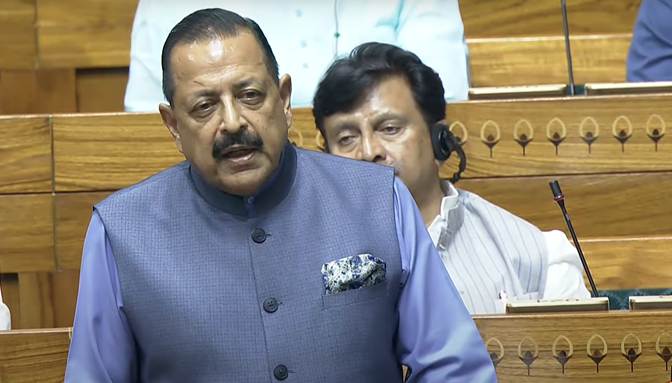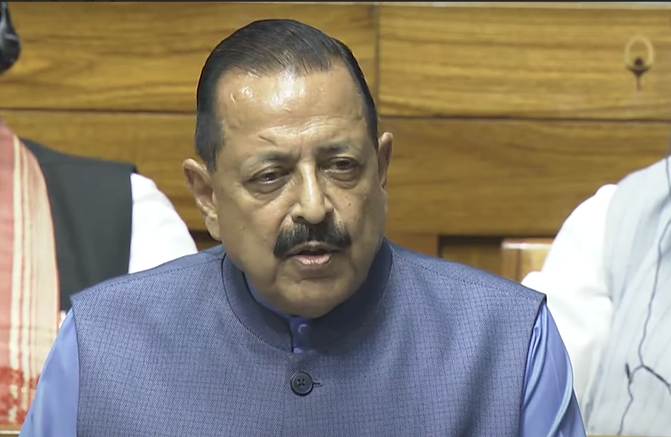Space experiments conducted by Subhanshu Shukla personify India as “Vishwabandhu” Bharat
Space experiments conducted by Subhanshu Shukla personify India as “Vishwabandhu” Bharat
Union Minister of State (Independent Charge) for Science and Technology; Earth Sciences and Minister of State for PMO, Department of Atomic Energy, Department of Space, Personnel, Public Grievances and Pensions, Dr. Jitendra Singh said here today that the Space experiments conducted by Subhanshu Shukla personify India as “Vishwabandhu” Bharat because even though these experiments were performed by an Indian using indigenous kits, their benefits would be available to the entire mankind. Broadly, these experiments dealt with lifesciences and plant physiology.
Introducing a special discussion on “Critical Role of the Space Programme for Viksit Bharat by 2047” in the Lok Sabha today, Dr. Jitendra Singh underlined that Group Captain Shubhanshu Shukla’s mission was not just a symbolic triumph but also a demonstration of India’s growing capability in cost-effective space technology, international collaboration, and indigenous innovation.
The Minister described the presence of India’s first astronaut aboard the International Space Station (ISS) as a “historic milestone” and linked the achievement to the country’s march towards becoming a developed nation by 2047.
The Minister noted that the ISS mission, undertaken at a fraction of the global cost, showcased India’s ability to combine intellectual resources with advanced scientific planning. “This success reflects the talent of our scientists and the enabling environment created, when reforms opened up the space sector to private participation,” he said, adding that more than 300 space startups are now contributing to India’s rapidly expanding space economy.

Dr. Jitendra Singh emphasized that the experiments carried out by Shukla during his stay on the ISS—spanning life sciences, agriculture, biotechnology, and cognitive research—were designed and developed in India, reinforcing the vision of an Atmanirbhar Bharat. He said the benefits of these studies will extend beyond space, with applications in health, agriculture, disaster management, and urban planning.
Tracing the trajectory of India’s space programme, the Minister credited Prime Minister Narendra Modi’s leadership for providing the policy ecosystem that accelerated progress. He cited the announcement from the Red Fort in 2018 that set India’s human spaceflight ambitions in motion, leading up to current collaborations with NASA, Axiom Space, and SpaceX.
Looking ahead, Dr. Jitendra Singh said India is on track for a series of major milestones: the Vyommitra humanoid mission in 2026, the launch of the first Indian astronaut under the Gaganyaan programme in 2027, an Indian space station by 2035, and an Indian astronaut setting foot on the Moon by 2040. “A few years before 2047, a young Indian will declare from the lunar surface the arrival of a Viksit Bharat,” he told the House.

“This is not just about one astronaut. It is about India’s place in the world and the dreams of every child who aspires to reach the stars,” Dr. Jitendra Singh concluded.